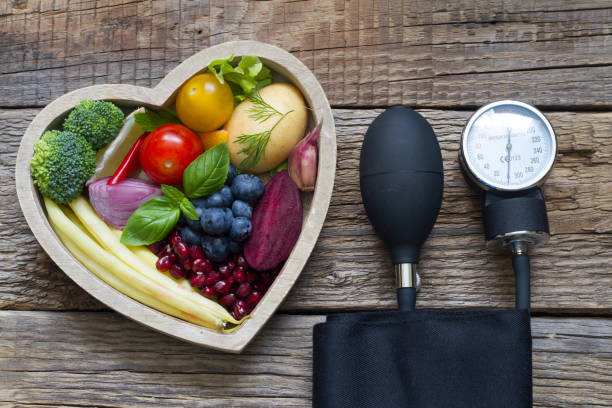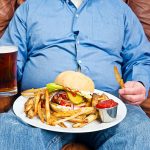The ONE organ responsible for high blood pressure.
Home Remedies for Managing High Blood Pressure

What is high blood pressure?
Blood pressure is the force at which blood pumps from the heart into the arteries. A normal blood pressure reading is less than 120/80 millimeters of mercury (mm Hg). When blood pressure is high, the blood moves through the arteries more forcefully. This puts increased pressure on the delicate tissues in the arteries and damages the blood vessels. High blood pressure, or hypertension, affects about half of American adults, estimates the American College of Cardiology. Known as a “silent killer,” it usually doesn’t cause symptoms until there’s significant damage done to the heart. Without visible symptoms, most people are unaware that they have high blood pressure.
Staying active is an important part of healthy living.
Along with helping lower blood pressure, regular physical activity benefits your mood, strength, and balance. It also decreases your risk of diabetes and other types of heart disease.
If you’ve been inactive for a while, talk with a doctor about a safe exercise routine. Start out slowly, then gradually pick up the pace and frequency of your workouts.
Not a fan of the gym? Take your workout outside. Go for a hike, jog, or swim and still reap the benefits. The most important thing is to get moving!
2. Follow the DASH diet
Following the Dietary Approaches to Stop Hypertension (DASH) diet can lower your systolic blood pressure by as much as 11 mm Hg. The DASH diet consists of:- eating fruits, vegetables, and whole grains
- eating low fat dairy products, lean meats, fish, and nuts
- eliminating foods that are high in saturated fats, such as processed foods, high fat dairy products, and fatty meats.
3. Limit salt
Reducing your sodium intake can be vital for lowering blood pressure. In some people, when you eat too much sodium, your body starts to retain fluid. This results in a sharp rise in blood pressure. The AHA recommends limiting your sodium intake to between 1,500 milligrams (mg) and 2,300 mg per day, which is a little over half a teaspoon of table salt. To decrease sodium in your diet, try using herbs and spices to add flavor to foods in place of salt. Processed foods also tend to be loaded with sodium. Be sure to always read food labels and choose low sodium alternatives when possible.4. Maintain a moderate weight
Weight and blood pressure go hand in hand. For people with overweight or obesity, losing even just 5 to 10 pounds can help lower blood pressure levels. In addition to reaching and maintaining a moderate weight, keeping tabs on your waistline is also critical for managing blood pressure. The extra fat around your waist, called visceral fat, may negatively affect heart health and could lead to serious health problems in the long run, including high blood pressure. In general, men should keep their waist measurement to less than 40 inches. while women should aim for less than 35 inches.5. If you smoke, consider quitting
Each cigarette you smoke temporarily raises blood pressure for several minutes after you finish. If you smoke regularly, your blood pressure can stay elevated for extended periods of time. People with high blood pressure who smoke are at greater risk for developing dangerously high blood pressure, heart attack, and stroke. Even secondhand smoke can put you at increased risk for high blood pressure and heart disease. Aside from providing numerous other health benefits, quitting smoking can help your blood pressure return to normal. Visit our smoking cessation center to take steps to quit today.6. Limit alcohol
Enjoying a glass of red wine with your dinner is perfectly fine. In fact, red wine might even be beneficial for heart health when consumed in moderation. However, drinking excessive amounts of alcohol can lead to lots of health issues, including high blood pressure. Excessive drinking can also reduce the effectiveness of certain blood pressure medications. What does drinking in moderation mean? The AHA recommends that men limit their consumption to two alcoholic drinks per day. Women should limit their intake to one alcoholic drink per day. One drink equals:- 12 ounces of beer
- 4 ounces of wine
- 1.5 ounces of 80-proof liquor
7. Reduce stress
In today’s fast-paced world that’s filled with increasing demands, it can be hard to slow down and relax. However, it’s important to step away from your daily responsibilities from time to time to help manage stress levels. Stress can temporarily raise your blood pressure. Too much of it can keep your pressure up for extended periods of time. It helps to identify the trigger for your stress. It may be your job, relationship, or finances. Once you know the source of your stress, you can try to find ways to fix the problem. You can also take steps to relieve your stress in a healthy way. Try taking a few deep breaths, meditating, or practicing yoga.alcohol and high blood pressurebest exercises to lower Blood PressureBlood Pressure and SodiumBlood Pressure Remedycure for high blood pressureDash dietdietary approach to stop hypertensionhome remedy for hypertensionmoderate weight for blood pressureNatural Hypertension RemedyRemedy for lowering blood pressureStress Management









